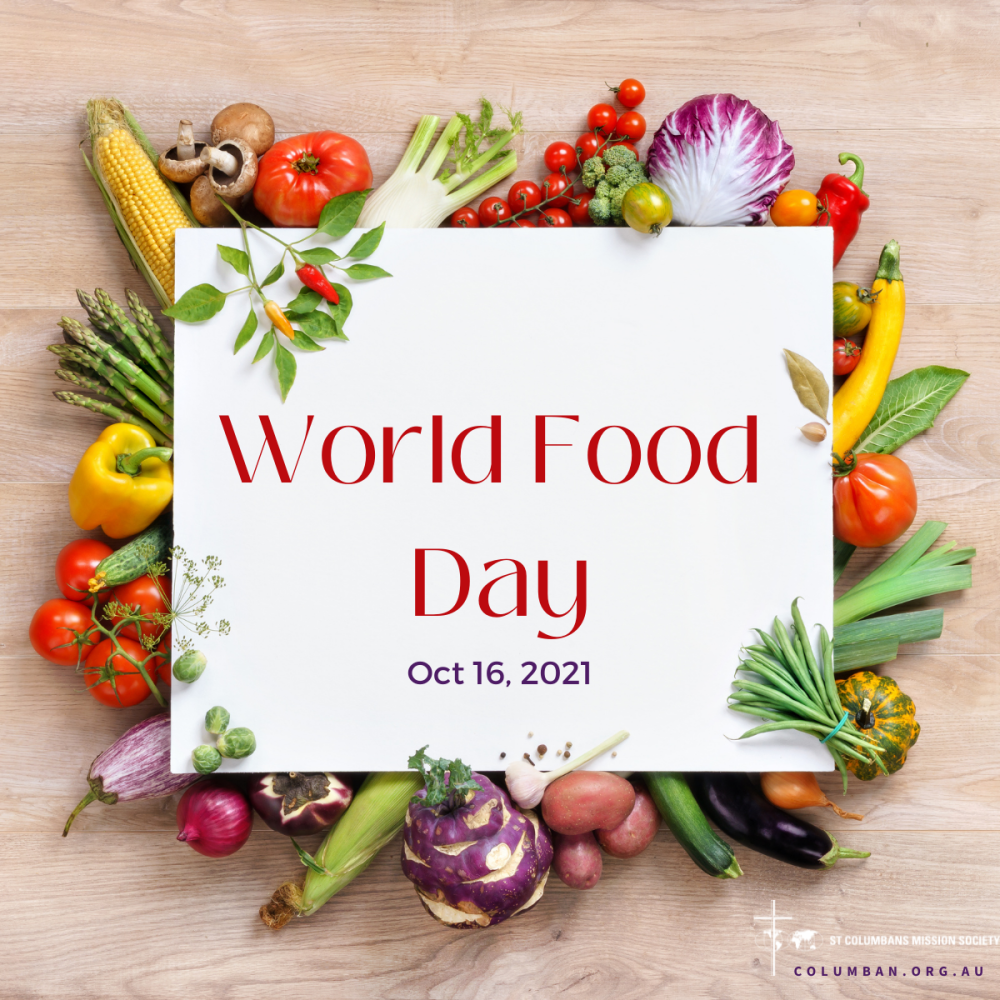 The Food and Agriculture Organization of the United Nations states 40% of the world’s population cannot afford healthy diets. World Food Day (October 16) is an opportunity to become more aware that better choices about the way food is produced, consumed and stored leads to an improved life and environment for all.
The Food and Agriculture Organization of the United Nations states 40% of the world’s population cannot afford healthy diets. World Food Day (October 16) is an opportunity to become more aware that better choices about the way food is produced, consumed and stored leads to an improved life and environment for all.
World Food Day is important for Columban missionaries who are involved in works responding to people’s needs worldwide. The Columban Women’s House project Warmi Huasi in Lima, Peru, has made an extraordinary response since the start of the Covid-19 pandemic which has severely impacted the country. Many families have been without incomes and access to basic essentials such as nutritious food. Columban Fr Ed O’Connell explained in a May 2020 article in the Catholic periodical ‘The Tablet,’ that communal kitchens staffed by volunteers have provided thousands of meals. Partnerships between the Women’s House project, local municipalities and the Ministry of Education have also assisted with virtual education and equipment for children to continue lessons at home. These partnerships have also facilitated the distribution of health information to help families stay safe. Fr Ed O’Connell states, “We are planning and re-planning as the situation changes from week to week.”
Pope Francis in his environmental Encyclical letter Laudato Si: On Care for our Common Home, addresses inadequacies and injustices across the whole food system that unfairly disadvantages communities who experience the most disadvantage. Pope Francis highlights the example of the progressive loss of small land-holdings in some countries that renders farmers casual labourers with less rights. Many rural workers are also forced into over-crowded urban areas that are poorly resourced to deal with this situation, leaving many in poverty.
New approaches across the whole food system, including the lifestyle choices made by consumers, will help address inequalities that have been worsened by the pandemic and pressing environmental issues. Simple daily habits such as limiting meat intake, buying local products and eliminating waste help to make a difference.
The replacement of traditional farming techniques with industrial approaches has also contributed to environmental destruction. The 2019 Global Assessment Report on Biodiversity reports that land degradation has reduced productivity in 23 percent of the global land area. Furthermore, there has been a decline in pollinators which are vital to crop production.
Climate change is another factor that is putting strain on food systems. The Report also confirms that nature’s resources are often distributed unequally around the world. The changes made in recent decades to global food production methods benefit some at the expense of others. Communities who are vulnerable and, nature itself, often carry most of the burden. However, these are issues that impact everyone, and by becoming more aware and doing our bit we can help support the bigger picture.
New York hosted the first-ever United Nations Food Systems Summit on 24th September 2021 which brought global representatives together to help accelerate action towards transforming food systems. The United Nations press conference said of the outcome of the Summit: “in terms of inclusiveness, I don’t know of a more inclusive process.” People looked at the global Sustainable Development Goals and saw themselves in them, helping to make a fairer world for all. The Food Systems Summit produced commitments from civil society, farmers, youth, Indigenous Peoples and Member states towards key action areas, including natural positive production of nutritious food for all, eliminating food waste, protecting workers rights, including those of minority groups and women, and helping to build resilience to climate change. Solutions exist to achieve these goals, and integrated responses will have multiple benefits for communities and economies.
New approaches across the whole food system, including the lifestyle choices made by consumers, will help address inequalities that have been worsened by the pandemic and pressing environmental issues. Simple daily habits such as limiting meat intake, buying local products and eliminating waste help to make a difference.
Pope Francis frequently speaks of cultivating cultures of encounter. In his Encyclical letter Fratteli Tutti the Pope states this demands hard work. “It is not about ignoring social demands or quelling disturbances by a consensus on paper that brings contentment for the minority,” but rather, the Pope says, a culture of encounter involves “being passionate about meeting others, seeking points of contact, and planning projects that include everyone.” Pope Francis says, “This becomes an aspiration and a style of life” (# 216).
Sr Caroline Vaitkunas RSM, Peace, Ecology and Justice Team member, Columban Mission Centre, Essendon.
